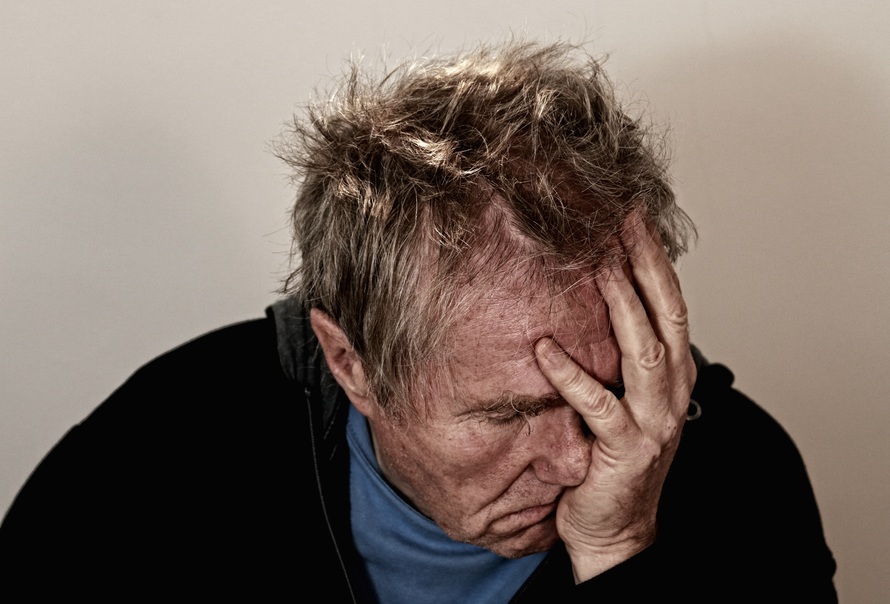If you are suffering from Low T or hypogonadism, your doctor may prescribe testosterone replacement therapy as a treatment. Simply put, testosterone replacement therapy involves putting a manufactured testosterone into a man’s body to synthetically increase testosterone levels. It is an ongoing process — NOT a quick fix — that most men will need to continue indefinitely.
If your doctor suggests that you undergo testosterone replacement therapy, avoid making a hasty decision to accept this conventional approach. You’ll want to seriously consider both the risks and benefits, as well as alternative options.
Read more to learn about the significant risks and common side effects…
“Men need to know about potential downsides and adverse effects to treatment,” says Dr. Robert Brannigan, MD, an associate professor of urology at the Northwestern University’s Feinberg School of Medicine in Chicago. “Unless an individual meets specific diagnostic criteria, there’s no reason to be given testosterone therapy.”
Significant Risks of Testosterone Replacement Therapy
There are significant risks you should seriously consider before moving ahead with Testosterone Replacement Therapy…
- Once you start testosterone replacement therapy, it shuts down your natural production of testosterone, causing your testosterone producing cells to stop working and your testicles to soften and shrink, says Dr. Oz. If you stop taking the therapy after using it for a month or so, you’re likely to feel terrible. You’ll may have low energy, low sex drive, be irritable, and even feel depressed.
- Testosterone replacement therapy can stimulate the growth of prostate cancer. Doctors recommend you avoid this therapy if you have active prostate cancer or an elevated prostate specific antigen (PSA). If you’ve had prostate cancer in the past, you would need to be in remission for 2 to 5 years before taking it.
- Testosterone replacement therapy may also be linked to an increased risk of heart attack and stroke. You should not take testosterone replacement if you have severe congestive heart failure as it can worsen the condition.
- This therapy also increases the risk of potentially life-threatening blood clots in veins. In fact, the FDA requires that testosterone replacement products carry a warning about this risk.
- Testosterone replacement can worsen sleep apnea. A man may not be able to detect sleep apnea himself, but his sleeping partner often can.
- There are no longterm clinical studies on the effect of testosterone replacement therapy. Since you’ll have to be on the treatment indefinitely, you won’t know how the treatment will affect you months or years later.
This is not a complete list of risks and side effects from testosterone replacement treatments. For more information, always consult with your physician or health care provider.
Common Side Effects of Testosterone Replacement Therapy
In addition, there are many common side effects that can occur when undergoing any form of conventional Testosterone Replacement Therapy (injections, patches, or gels). These common side effects include…
- Acne or oily skin
- Fluid retention
- Stimulation of prostate, which may cause either decreased urine stream or increased frequency of urination
- Breast enlargement
- Decreased testicular size
- Changes in cholesterol and lipid levels
- Decrease in sperm count leading to infertility – especially in younger men
- Increase in PSA (prostate specific antigen) — the higher the PSA, the increased risk of prostate cancer
- Headaches, anxiety, depression
- Weight gain
- Uncontrollable erections
The list doesn’t stop there. There are additional side effects, including some related specifically to the type of treatment. To learn more, ask your physician or health care provider.
NOTE: According to the Mayo Clinic, there’s no clear evidence testosterone replacement therapy would have any benefit for men who have Low T but are otherwise healthy. In other words, if you’re a healthy man with Low T, there’s no compelling reason to undergo the therapy.
There Must Be a Safer Way
Risks and side effects go hand in hand with Testosterone Replacement Therapy – easily outweighing the potential benefits. “Some men can benefit and will feel better on testosterone, but the risks of testosterone therapy can outweigh the benefits if you are not careful about who gets treated,” says Dr. Bruce Gilbert, MD, an adjunct clinical professor of urology and reproductive medicine at Weill Cornell Medical College in New York City.
What men need to understand is this: for many of them, there IS a safer and natural way.
If your problems are related to lifestyle, as opposed to an actual medical condition that severely impairs your hormone production, then it would be far better and safer to make the appropriate lifestyle changes.
When you properly make changes to your lifestyle, you can optimize your body’s natural production of testosterone and other hormones. And with no side effects or life-threatening risks.
Want to learn more? Get a FREE copy of our eBook Boost Your Testosterone – Naturally, and learn how to optimize your testosterone naturally with diet, exercise and supplements.
References
Disclaimer: Despite the references provided, the information on this site is intended for educational purposes only. It is not meant to cover all possible precautions, drug interactions, circumstances or adverse effects. Please refer for advise and treatment by a licensed physician.
- http://www.drugs.com.mtm/testosteroneinjection.html
- http://www.nlm.gov/medlineplus/druginfo/meds/a614041.html
- http://www.drugs.com/pro/testosteronegel.html
- http://www.harvardprostateknowledge.org/aharvardexpertshareshisthoughtsontestosteronereplacementtherapy
- http://www.drugs.com/cdi/tesosteronepatch.html
- http://www.nlm.gov/medlineplus/druginfo/meds/a603034.html
- http://www.nlm.nih.gov/medlineplus/druginfo/meds/a601118.html
- http://www.webmd.com/men/guide/testosteronereplacementtherapyisitrightforyou










